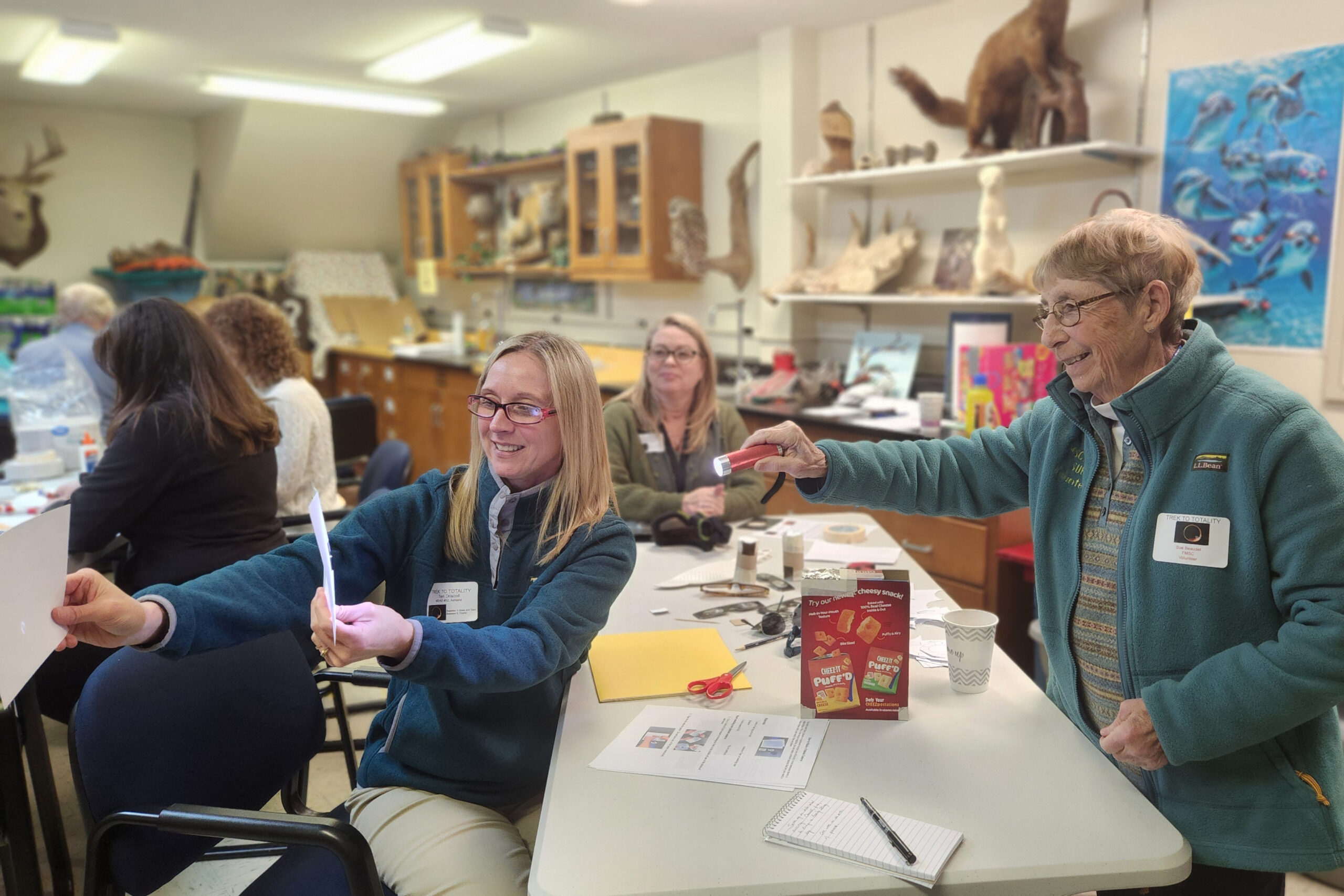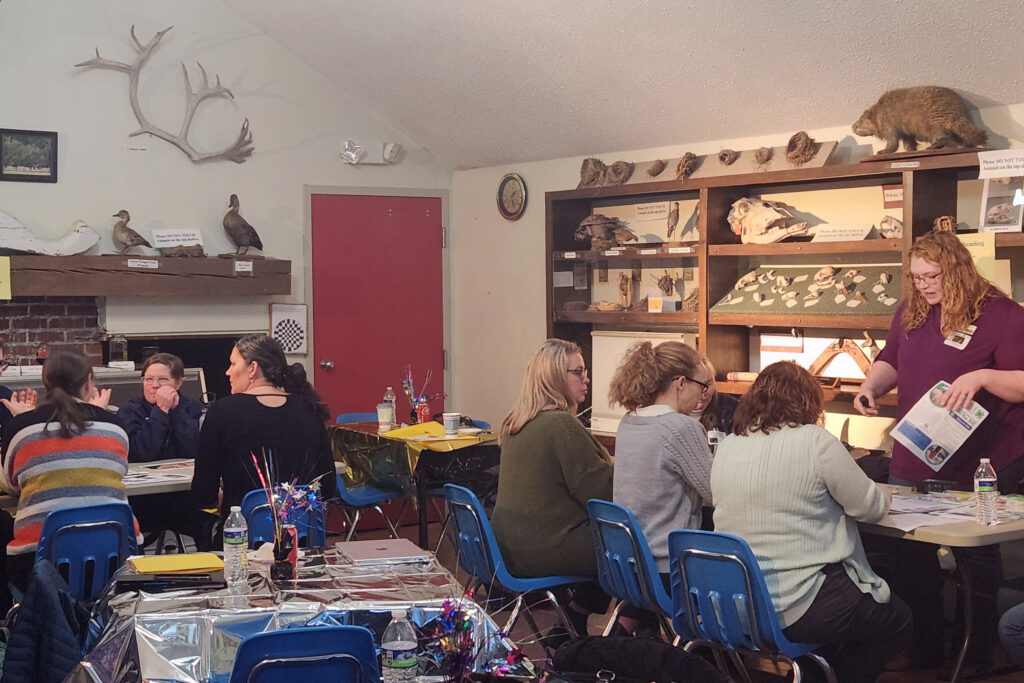
A group of Aroostook County educators wants the April 8 solar eclipse to be more than a few minutes in the lives of students. They want it to spark fascination with the natural world.
So they created Trek to Totality, a workshop to train teachers how to instruct students about the celestial event. More than 30 participants packed the first of two sessions on Tuesday at Easton’s Francis Malcolm Science Center.
The total solar eclipse will track across northern Maine and is expected to draw tens of thousands of onlookers to the area.
In all the preparations for the event, from community activities to traffic logistics, no one was reaching out to teachers and other youth leaders, said Elaine Hendrickson of Presque Isle, retired instructor and Trek to Totality chair. That’s why she and colleagues Mary Jo Badger and Jim Stepp created the workshop: to give participants ideas and tools to teach kids about the eclipse.
“We’re trying to reach schools, because we want the children to be safe and we want them to know what’s going on,” Hendrickson said.
The three educators volunteer at the science center and planetarium. Stepp came up with the idea to train teachers, while Badger helped Hendrickson develop the program. It’s the only workshop of its kind in the state as far as she knows, Hendrickson said.

Tuesday’s session included teachers and leaders from 4-H, Boy Scouts and Girl Scouts, from Hodgdon to the St. John Valley, she said.
The response was so great that a second workshop is planned in February, and participants have registered from all over Maine, Hendrickson said.
Inside the crowded science center, participants rotated among presenters, learning how to talk about eye safety, building a pinhole viewer to share with students, and creating a demonstration to show the positions of the earth, sun and moon during an eclipse.
Other displays included a selection of children’s books about eclipses, a word wall and an exploration of what happens if it’s cloudy on the big day.
The event couldn’t have happened without financial support from the Gulf of Maine Research Institute of Portland, who provided an $11,000 grant for the workshop, Hendrickson said. She applied for the grant nearly two years ago.
The institute may focus on the Gulf of Maine, but its educational programs cast a much wider net, said Chief Education Officer Leigh Peake, who attended the workshop with colleague Terence Finnegan.
The research center supports various STEM (science, technology, engineering and math) programs, some of which receive funding from the National Aeronautics and Space Administration, she said. Staff want to help people think of the eclipse as a chance to spark kids’ interest in citizen science.
The Trek to Totality workshop had all those ingredients.
“It was just the perfect confluence of events — this volunteer-run science center in the middle of Aroostook County, in the path of a global event,” she said. “[We can] broaden people’s thinking of it as an opportunity to get kids engaged in science in a really engaging event.”
The grant also covers a stipend for participants who attend, she said.
As students hear all the talk about the eclipse, they’re aware something big is happening, Finnegan said. Even kids who don’t see themselves as scientists are interested.

Creating school activities and excitement around the eclipse can help make kids keen observers of the scientific world that’s all around them, he said.
He and Peake shared project ideas with teachers like Soundscapes, through which kids can observe the sounds of the eclipse, like the noises animals make when day suddenly becomes dark.
Another project involves kids writing down their observations during the eclipse, which will be recorded in an eclipse journal the institute intends to compile.
The institute is involved in two other eclipse programs. One involves helping Wabanaki communities near the path of totality to blend Indigenous knowledge with eclipse science. The other will help transport particularly immigrant and refugee youth from the Lewiston and Portland areas to places where they can view the eclipse.
“All of science starts with observation,” Peake said. “The eclipse is a great way for kids to do science by observing the natural world.”
Hendrickson couldn’t agree more. The science center’s nature programs and planetarium shows aim to get kids excited about what they see around them.
In addition to the next Trek to Totality workshop on Feb. 13, the Francis Malcolm Science Center will host local Boy Scouts for a hike in the woods, where they will learn about eclipse safety, measuring temperatures during the event and observing animal reactions. And on the big day, the center plans a special eclipse planetarium show, Hendrickson said.
Some teachers have already shared eclipse plans, including a schoolwide family literacy day and an activity with parents so they can explain what happens during the event.
That’s exactly what Henderson hoped the workshop would inspire.
“That’s why we’re having this,” she said. “I wanted them to go home with a bag full of things.”







